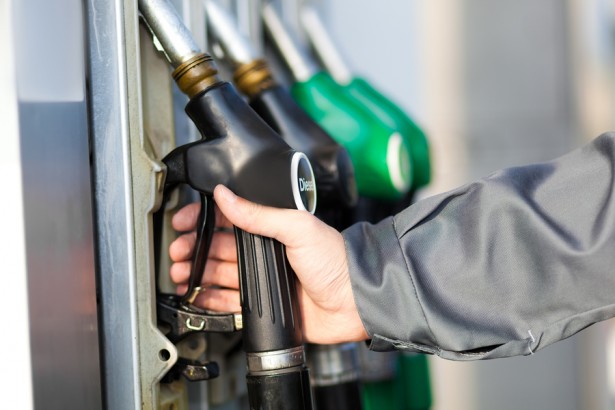Last month, former Pennsylvania Democratic Governor Ed Rendell recommended that the federal government begin to raise the gas tax as fuel prices continue to fall in order to pay for infrastructure projects.
“The gas tax hike … would be 12 cents adjusted for inflation,” said Gov. Rendell. “That would cost the average driver $130 a year, they would get a return on that investment. They would actually save money. It would make our roads safer, improve our quality of life, it would make us more economically competitive. It would create tens of thousands of middle-class jobs…”
In December, Treasury Secretary Jack Lew even referred to lower gas prices as a tax cut.
The proposal to raise the gas tax was first introduced this past summer by Senators Bob Corker and Chris Murphy when gas prices were still rather high. Their idea was to cut other taxes while increasing the gas tax, but the scheme didn’t really go anywhere.

Fast forward another month, and now a top Republican suggests that a gas tax hike could be on the table when the GOP-controlled Congress returns to session after the Christmas break.
John Thune, South Dakota Republican Senator and the incoming GOP leader of the Senate Transportation Committee, said Sunday in an interview with Fox News that all options are being considered, including an increase in the gas tax.
“I don’t think we take anything off the table at this point. Those discussions continue,” said Thune. “It is important that we fund infrastructure.” He added that it’s important to look at an array of solutions, especially considering that the present highway legislation expires in May.
The federal gas tax is 18.4 cents per gallon and the diesel tax is 24.4 cents per gallon. According to an estimate from the U.S. Energy Information Administration, when other state taxes are taken into account, drivers can pay an average of 23.47 cents in gas taxes
With gas prices at their lowest levels in years – many motorists have seen a gallon of gas dip below $2 – politicos are pushing ahead with the idea of raising the gas tax. Since it hasn’t been given a boost in 20 years, the Highway Trust Fund has experienced continual shortfalls, a problem for Washington since this fund pays for most road projects.
Congress has refrained from looking at hiking the gas tax, even though numerous commissions have presented the case in raising it. In the meantime, Congress has repeatedly taken money out of the general treasury to help fund infrastructure endeavors.
Although most reports suggest that lower gas prices are here to stay at least for another year, a lot of experts posit that they aren’t for the long-term. With oil prices maintaining the current trend, it could be more expensive for United States producers to extract oil, which could prompt them to cut production levels. Others also say there’s a greater abundance of oil overseas than in the U.S.
Jim Rogers, chairman of Rogers Holdings and an oil naysayer, told the Business Insider in November:
“It’s a fundamental positive for anybody who uses oil, who uses energy. It’s not a positive for places like Canada, Russia, or Australia. It seems to me that this is a bit of an artificial move. The Saudis, from what I can gather, are dumping oil because the US has told them to in order to put pressure on Russia and Iran. And it’s probably not a real move. I read about shale oil like you do. But at the same time, North Sea production is declining. Russian production will start declining next year. All the major oil fields that we know about — all the production is static or declining. So it doesn’t quite add up on any kind of medium-term basis I can see.”
Daily Finance also writes that OPEC may be soon ready to push higher oil prices. It added that replacements to oil are too minuscule from making a considerable dent in oil prices, at least for another generation.
In other words, what would happen to American motorists when gas prices start ascending again?



